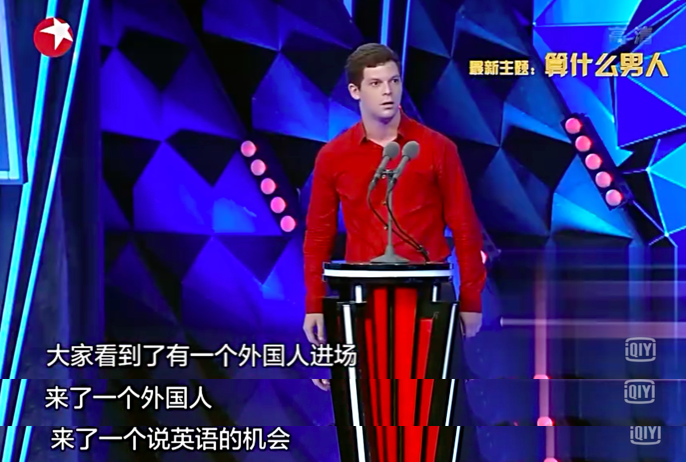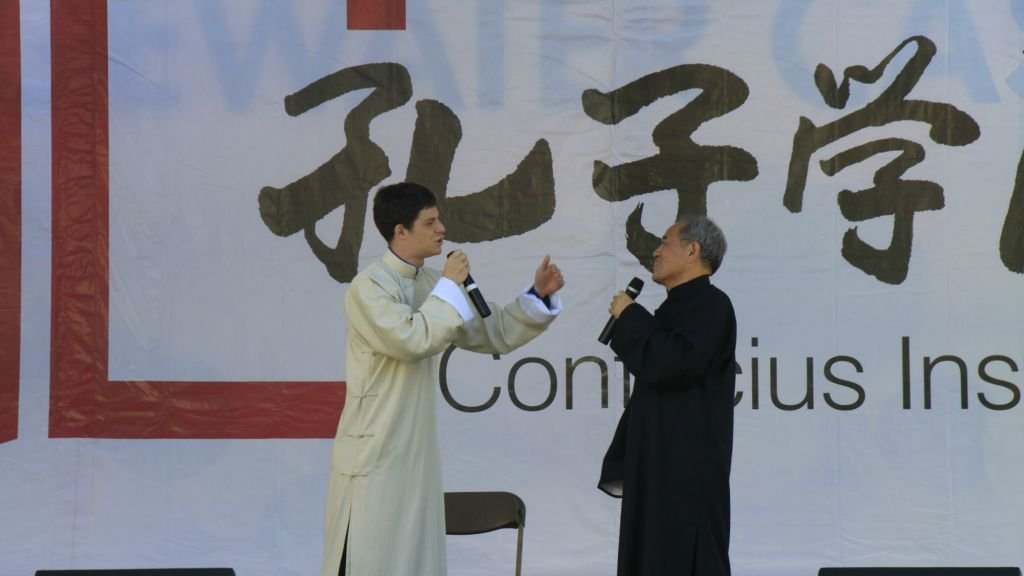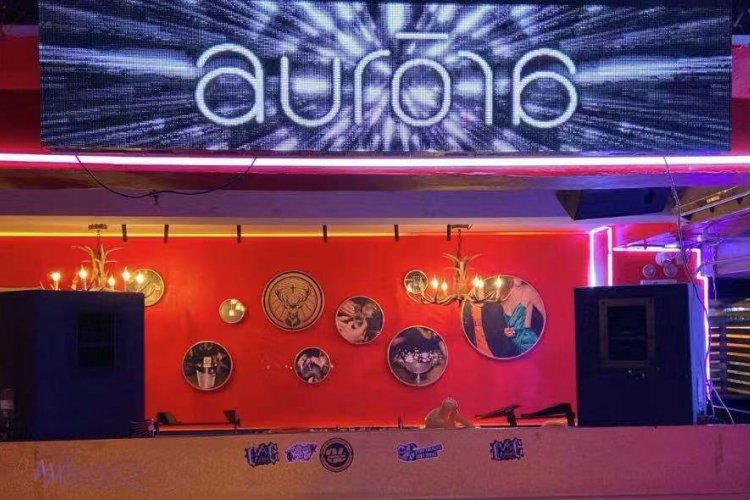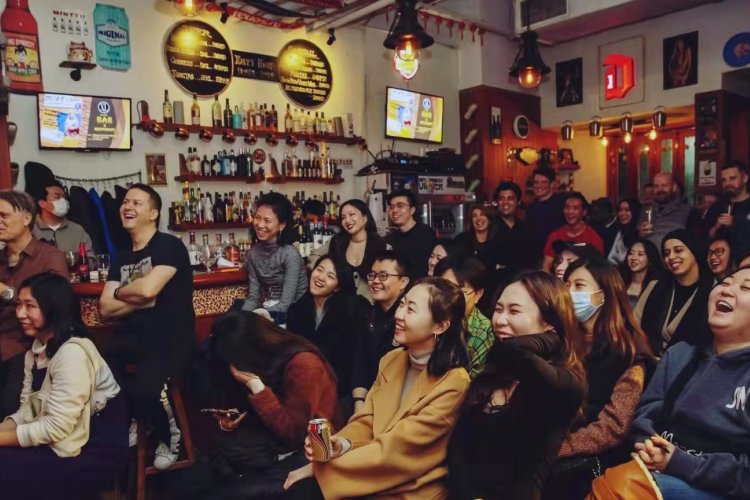"We Can't Have Your Belly Showing on Television" Comic Jesse Appell on His Breakthrough Chinese National TV Appearance
While most foreigners joke about the Beijing bikini, one of the city’s most famously funny laowai was shocked to find that you can’t crack wise about the midriff-exposing practice on national TV. Jesse Appell – the Boston-born founder of the US-China Comedy Center, a student of crosstalk, and a pioneering standup – had a breakthrough appearance on the hugely popular Post-'80s Talkshow (今晚80後脫口秀) earlier this month, which you can watch here. On it, he cracked wise about the overlap between dongbei ren and Bostonians, the quetsions that Chinese people ask foreigners ad nauseam (one bit depicting a woman asking Appell if he used chopsticks, even though she'd been in a car accident moments before) and more.
The set was a big enough hit with the studio audience and viewers at home to land Appell a writing gig on another Chinese TV show that will air in November. Inspiring as those successes were, there were also a few frustrating restrictions on the jokes he could tell.
“I had a couple of jokes that weren’t allowed on the air, including one where I mimic an old Chinese dude watching people play májiàng and I roll up my shirt to do the Beijing bikini, to authentically portray him,” Appell says with a laugh during a recent interview after that breakthrough TV appearance. “They told me ‘No, we can’t have your belly showing on TV,’ which I thought was a shame.”
Below, Appell tells us more about the hurdles involved with performing on Chinese television, how he went from an ordinary American university student to a foreigner at the forefront of Chinese-language standup, and how laughter can be the best medicine when it comes to dysfunctional US-Chinese ties.

I always enjoyed making jokes and being funny, and I did improv in high school. But I never thought I’d make a career out of it. When I graduated college, I came to China on a fellowship to research xiangsheng crosstalk. So for the past five years – first on the fellowship and then independently – I studied crosstalk and started doing standup on the side, as I began to see an open mic scene grow and develop in Beijing.
Doing standup was freeing because it allowed me to do jokes that aren’t from the archetype of crosstalk, and I was able to interact with the audience.
I’ve seen the Beijing standup scene grow from seven people to an industry that's getting big and employing people, and getting lots of hits on the internet and shows on TV. It was fun to do some of the first open mics, and then slowly realize standup can totally be a thing in China, that it can totally grow and become huge.
On the day of filming the Post-'80s Talkshow, a few hours before I went onstage, I got some bad news. I had been working with a standup company that has a theater and is doing shows, and they had booked me to do a bunch of shows every weekend for the next few weeks. The script I submitted to them for my act had to go through a whole bunch of government departments, which is normal here. It wasn’t denied by officials or anything, but the people at the theater were so worried that the process would take so long, it would slow the approval process down for their Chinese acts, so they decided to cancel my contracts. So I had this major setback, but also this big national TV appearance, and it was a reminder that the path to success doesn’t go straight up.

I’ve recently been writing for this Chinese internet show that will air in November. It’s very topic-based and very Chinese audience-oriented, so I did a few jokes about Chinese celebrities doing product endorsements. But what I’m really looking forward to is joking about jianbing restaurants that have opened in the US that are fancy and expensive.
People ask me: does comedy not translate? How can it cross over between English and Chinese? It’s true that individual jokes often don’t translate, but everyone likes to laugh.
The US-Chinese relationship is complex and can be stressful. But the workshops we do at the US-China Comedy Center prove that, despite our differences, we can have fun in a room, that a place can exist solely for comedy fans from China and elsewhere to coalesce around. That already is very satisfying.
Comedy can bring American and China together. The US-China Comedy Center can help people who aren’t looking to go into cheap stereotypes, but who are interested in spending every day working in another culture to make people laugh. It’s for people who believe in that social mission.
If you'd like to catch one of the many weekly shows at the US-China Comedy center, or get involved in performing, follow the center on WeChat at usccc_staff Read his own account of his national TV appearance and being a standup in China on Sup China here.
Photo: Aaron Berkovich, Courtesy of Appell, Sup China, The Times of Israel
Related stories :
Comments
New comments are displayed first.Comments
![]() applepai
Submitted by Guest on Thu, 11/16/2017 - 09:52 Permalink
applepai
Submitted by Guest on Thu, 11/16/2017 - 09:52 Permalink
Re: "We Can't Have Your Belly Showing on Television" Comic...
...the opening bit just seems like Joe Wong's jokes translated into Chinese
Validate your mobile phone number to post comments.







